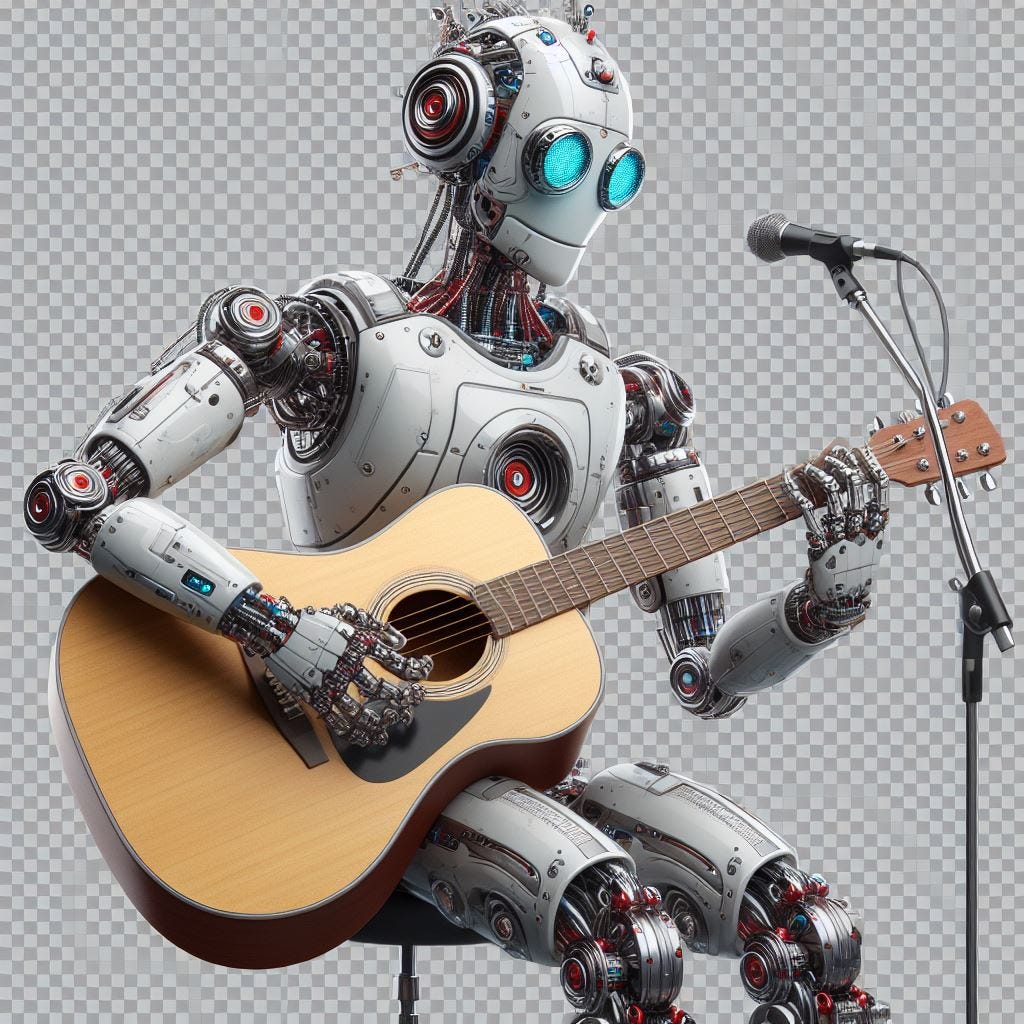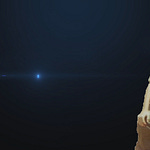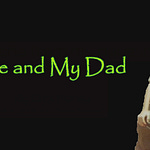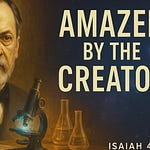Thank you, Mark, and thank you for dropping by to listen.
Since today’s episode is dealing with some recent advances in artificial intelligence, I thought it would be good to reference the source of the audio introduction to this podcast.
It is NOT artificial intelligence.
If you are listening to this episode, the voice you hear on the intro belongs to Mark Yates, a voice-over artist from the UK. I paid for his services several years ago and really appreciate his excellent work.
Now, back to “The AI Musician.”
AI’s ability to create music has improved quickly.
I should begin with a little personal background.
For those of you who heard me share this information before, please bear with me.
A LITTLE BACKGROUND
When I was in high school, I was fascinated with acting and even considered pursing it as a career. I was especially captivated with musicals — the Sound of Music, My Fair Lady, Oklahoma, The Music Man, Seven Brides for Seven Brothers, West Side Story, and the list goes on and on and on.
My drama teacher in high school suggested I take dancing lessons, specifically adagio, because dancing was required of actors who wanted to work in musicals.
Adagio dancing refers to a slow and graceful movement often performed by a pair of dancers. The term “adagio” comes from the Italian word for “at ease” or “at leisure.” It describes movements executed with fluidity and control, emphasizing elegance and precision
The definition was given to me by Copilot, an AI that’s built into the Microsoft Edge browser. If you’re listening to the podcast, the voice you just heard giving that definition was “Norman,” an AI generated voice created by Synthesis.
Now back to my story.
Fluidity, control, elegance and precision are not terms I would have used to describe my dancing skills. I learned to do a simple box step in Junior High P.E., and I could do the Twist, a popular dance of my era, because slow and graceful movements were not required. If I wanted to be in musicals, I needed a lot of help.
So, I went to a local dance studio to sign up for a class in adagio, but when I arrived — praise the Lord, Hallelujah — the studio was closed.
I believe the Lord was in that.
Because as I thought about what it would be like jumping around on stage in tight clothes, spinning, twirling, hopefully catching girls in the air doing their routines, I realized adagio dancing was not something I really wanted to do.
Now not having dancing skills would hinder my dream of a career in musical theater, but I had a few other obstacles as well.
First … I couldn’t sing. Even the guys jumping around … I mean dancing … in the background of the musicals I saw needed to be able to carry a tune.
AND
Second … I couldn’t act. I could memorize lines but delivering them in an effective way on stage was not in my wheelhouse.
Other than those deficiencies, I might have had a career performing in musicals.
ANOTHER CAREER CHANCE
If I wanted a career in music, I needed another option.
And then it dawned on me.
What if I could play an instrument?
That was it.
I could learn to play an instrument and then I could perform.
That might be my ticket.
I went to the local drug store and bought a cheap guitar. Why a drug store carried a cheap guitar I don’t know, but I bought it. All I had to do now, was learn how to play it.
I signed up for guitar lessons — this was before YouTube videos existed — and paid a human being real money every week to teach me how to play the guitar.
I learned how to tune it, then I learned several basic chords, some strumming patterns, and even a few fingering patterns.
But I wasn’t a classical guitarist, so to use my skills, I would have to sing.
Now folk songs were big at that time, and some of the folk singers of my day didn’t really have beautiful voices. They just told stories in their songs. I loved telling stories. Perhaps I could do this.
But when I started to sing stories, I made the voices of some of those gravelly voiced folksingers sound like Perry Como or Pavaroti.
My musical career was over before it even started.
For over half a century, my dreams of being a musician were put on the shelf.
I had to content myself with telling stories in the classroom (I was a history teacher), writing novels, or writing screenplays.
But my musical skills lay dormant.
And then …
ARTIFICIAL INTELLIGENCE ARRIVED
As AI began sneaking into many aspects of life, I learned that it was developing the ability to create music
Now that was exciting to me. Maybe I could take those dreams off the shelf and become a musician.
About a year ago, I began asking my AI to create songs. At first it told me it couldn’t.
I waited, giving it a chance to grow.
A few months later when I asked my AI to create a song, it said it could. That was an exciting moment. I gave it some simple directions for the type of song I wanted, and it gave me … a poem.
I didn’t want a poem. I wanted a song.
But the AI said it couldn’t write music.
Now I could make up a tune and try to sing the poem, but … trust me on this … it was not a pretty experience.
So, again I waited.
Several more months went by then once again I asked for a song. The AI was very accommodating and gave me another poem. This time, however, when I asked for it to create music, my AI said “Certainly.”
I was ecstatic. Finally.
But it didn’t give me sheet music with notes.
Instead, it printed out the poem with guitar chords printed above the words.
That was it. Guitar chords.
I pulled my guitar out of the closet, tuned it, and tried to remember the chord fingering. I did my best to make up a tune and sing as I strummed the guitar.
Fortunately, no one else was in the house to hear my guitar playing or my voice. About the only thing I could say about the experience is that my fingertips hurt something awful.
I was about to give up.
And then …
Music creating AI grew up.
It claimed it could create actual music. Not just words or chords but music.
If this was true …
I didn’t have to worry about music theory, hitting a correct note, harmonizing, tempo, or anything. I didn’t have to worry about my questionable guitar skills.
In fact, I didn’t need any skills at all.
That’s when I was introduced to a fascinating AI called Suno AI.
I rushed over to the website and asked Suno AI to “create an acoustic guitar solo of a Christian hymn” and here’s what Suno gave me:
Now that’s some nice guitar work. It is a whole lot nicer than I ever played guitar even when I was taking lessons and practicing.
But it wasn’t just the guitar.
Suno claimed it could also write songs.
I asked Suno AI to “create a duet singing a Christian worship song” and it gave me the following female voice:
I grant you it wasn’t the duet I was looking for, but then it also gave me a male voice singing the same song.
Finally, I was a musician.
I know some of you who play instruments or sing might not think I deserve credit for creating music, but it was my words that led the AI to make the songs.
After all, I wrote the prompts!
Doesn’t that make me a musician?
No?
You mean the AI gets credit for being the musician and I don’t?
Well, you’re probably right.
But for a brief moment, with the help of Suno AI, I felt like I had a part in creating beautiful music.
Now if I can just find an AI that will turn me into a dancer, perhaps I can dust off my dreams of being in a Broadway musical
But until then, I’d like to share a blessing with you from the Old Testament.
“May the Lord bless and protect you; may the Lord’s face radiate with joy because of you; may he be gracious to you, show you his favor, and give you his peace.”
Numbers 6:24-26 (The Living Bible)
Until next time … be the reason someone smiles today
NOTE: For those of you who would like to try out this AI you can check out Suno AI. They have free and paid options.












